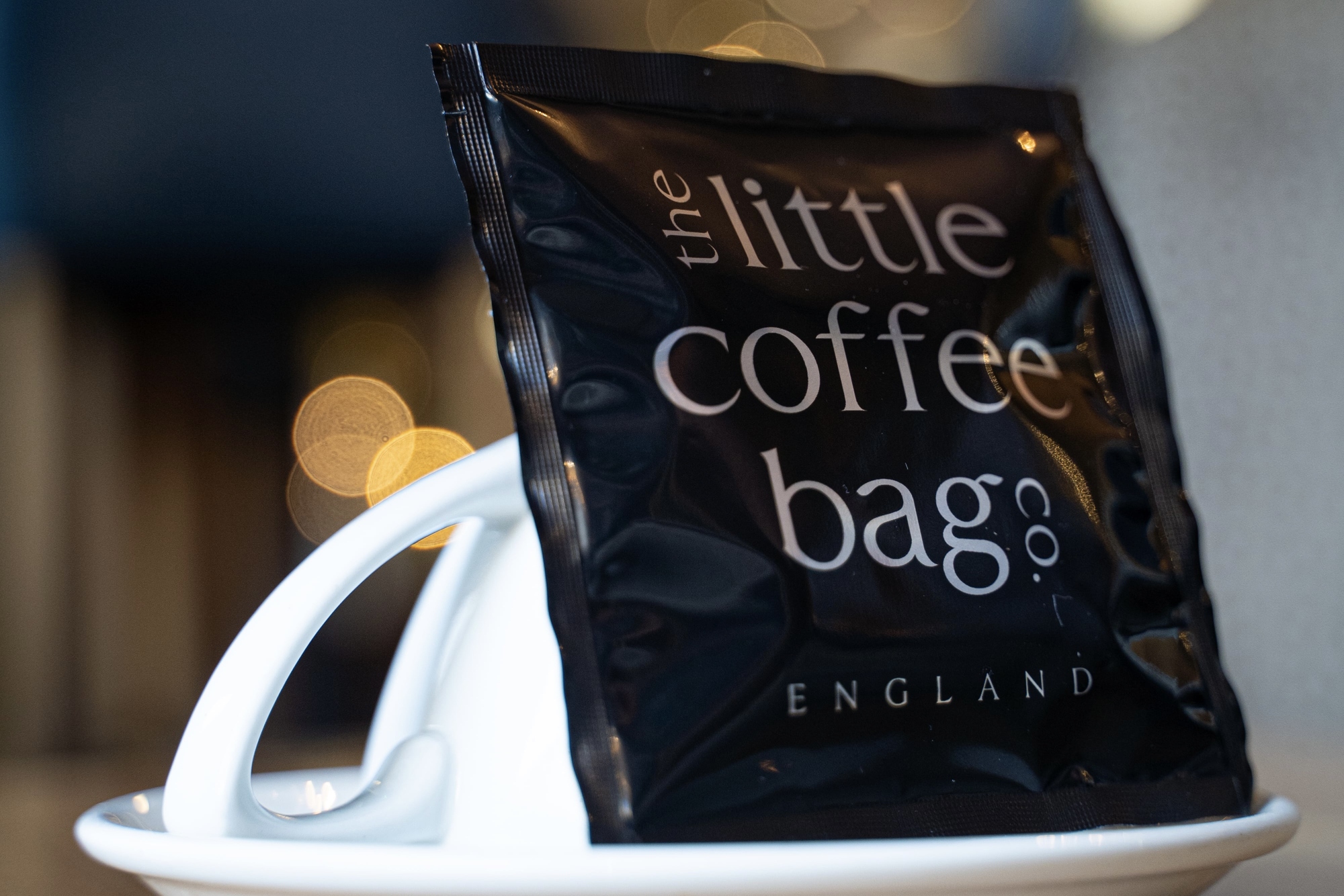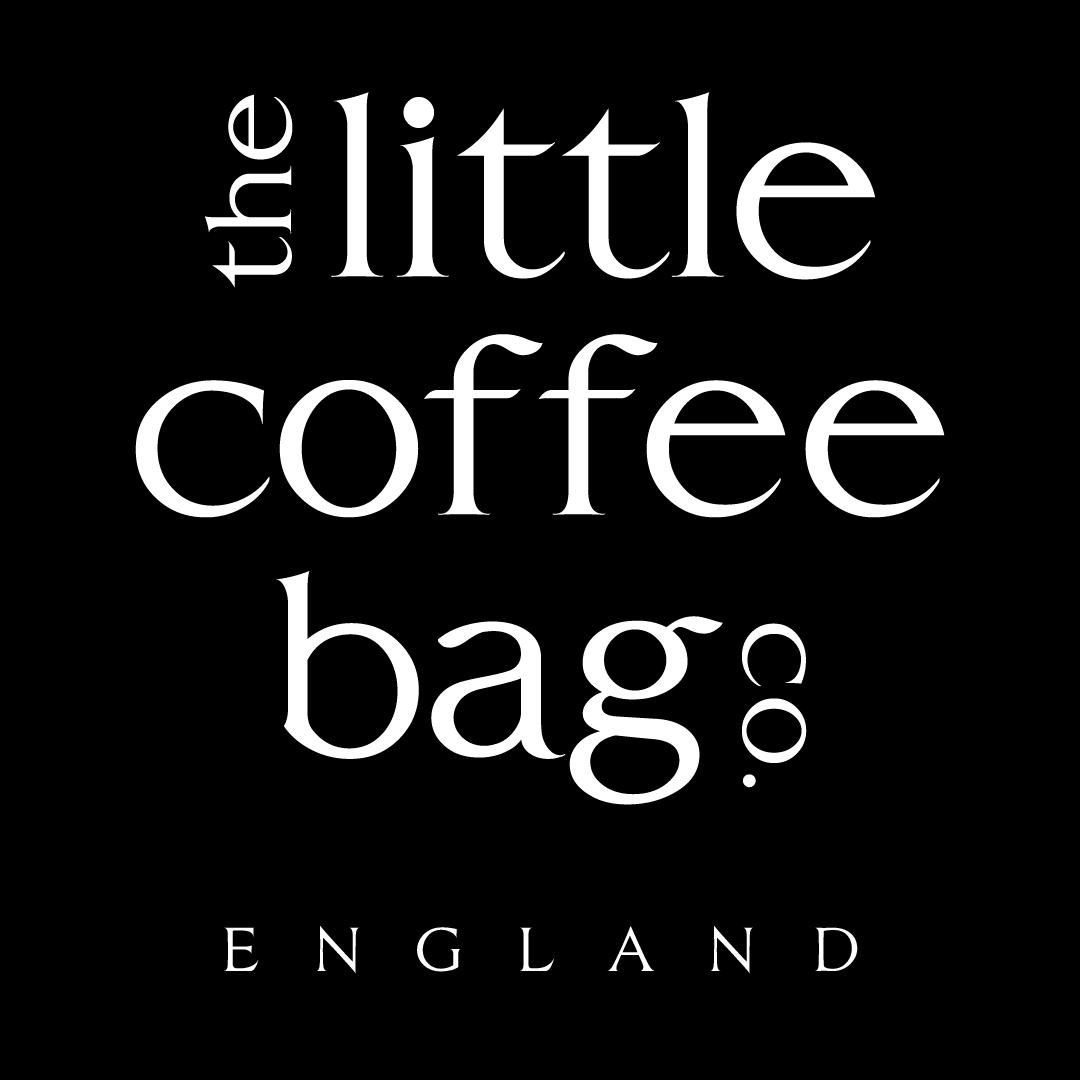Tea comes in a bag, coffee doesn’t. Right?
Wrong.
Invented in 1908, tea bags have taken the UK by storm – nowadays, the British population drinks approximately 100 million cups of tea per day – while coffee is usually bought in the form of instant powder, whole coffee beans, or pre-ground beans.
Contrary to popular belief, coffee can come in a bag, though! In fact, the market value of coffee bags has been growing at a rapid speed in recent years as more hotels and B&Bs jump on board.
There are numerous pros to using hotel coffee bags, from price and sustainability to quality and cleanliness.
Read on for a deep dive into why the best coffee for hotels is brewed from a bag.
Coffee Bags Are Higher Quality Than Instant Coffee
According to the British Coffee Association, 80% of UK households buy instant coffee. However, instant coffee is typically made of the cheapest Robusta coffee beans available.
What’s more, the quality of instant coffee is impaired due to the process that makes it fully dissolvable in water; whole beans are roasted, ground, and brewed. After the water’s been evaporated, a syrupy coffee extract remains, which is further frozen and broken up into granules.
Afterwards, the coffee needs to undergo a sublimation process to remove the frozen water. This is where a lot of aromas are lost and need to be readded by spraying the granules.
In comparison, coffee bags contain ground coffee which is yet to be brewed, which happens in your cup immediately before you drink it! This produces a cafetière style coffee, letting you enjoy the delicious taste of a freshly brewed beverage.
Remember how most Brits drink instant coffee? When they book a relaxing hotel stay, coffee bags can completely revolutionise the experience – not only does the product provide higher-value coffee than what most Brits are used to, but it’s also efficient and convenient.
Hotel Coffee Made Fuss-Free
Coffee machines are expensive. They break down, and they may be difficult to navigate for those who haven’t used them before. Not to mention the mess left behind in cafetières.
It comes as no surprise that 80% of people consider cleanliness and high standards of hygiene one of their top priorities when staying at a hotel. Things get a little more complicated when we factor daily housekeeping into the equation, though – data shows that almost two-thirds of guests don’t want their hotel rooms to be cleaned every day.
Since Brits tend to drink 2-3 cups of coffee per day, many hotel guests may end up cleaning their cafetières themselves, creating unnecessary fuss when things should be easy and relaxing.
Hotel coffee bags to the rescue! Drinking coffee isn’t only about the taste but the experience itself, and providing guests with coffee bags ensures there are no complications when they forego housekeeping services.
While the bags themselves can be disposed of sustainably in the bin, cups may also be easier to clean, due the little residue left in the cup.
Sustainability Score: Coffee Bags 1:0 Coffee Pods
Did you know that nearly 30,000 coffee pods end up in landfills each year? What’s worse, it takes half a millennium for them to decompose. This makes them one of the worst types of human waste as far as long-term environmental harm is concerned.
The reason coffee pods take the longest to degrade – they come second only to glass – is that they are made to withstand the pressure of a coffee machine, resulting in a strong blend of aluminium and plastic.
Coffee bags made from bio-web, on the other hand… that’s a different story entirely. They can be made with fully biodegradable coffee bags, and all-recyclable outer packaging, using less than 30% of the amount of plastic you’d find in a coffee pod.
Since hotel and B&B guests consume a tremendous amount of coffee, switching to biodegradable bags can majorly influence the environmental impact of every establishment.
Plus, up to 75% of travellers have reported they are willing to pay more for a stay at an eco-friendly hotel, and more than half consider eco-friendliness a bonus. Choosing sustainability, coffee included, can therefore lead to a potential increase in bookings and repeat visits.
Coffee Bags Go In, Expenses Come Down
The best coffee for hotels can be determined by looking at factors such as coffee quality, guest satisfaction, efficiency, and of course, price.
Mid-range espresso coffee machines can cost hundreds of pounds, which quickly adds up to thousands when you equip each hotel room – tens of thousands in many cases – before you’ve even bought any coffee! There are then ongoing coffee, energy and maintenance costs to consider over the long term.
Coffee bags require no maintenance. For the price of one low-cost machine, it’s possible to get as many as 600 bags. Moreover, coffee machines need extra supplies to work – pods, for instance – while one coffee bag is a complete product on its own.
In short, coffee bags are the ideal option for hotels looking to decrease expenses and increase guest satisfaction.
It’s a win-win situation.
Conclusion
Hotel coffee bags are on the rise, and for a good reason. The benefits are numerous:
- Coffee bags provide the quality of a freshly brewed cup of coffee, while instant coffee don’t hit the mark.
- Coffee bags are fuss-free, clean, and display clear instructions that are easy to follow.
- Biodegradable coffee bags majorly decrease the environmental impact of each establishment, whilst coffee pods take over 500 years to decompose.
- Coffee bags are cheaper than coffee machines, reducing costs and keeping quality standards high.
The Little Coffee Bag Co. provides premium, individually wrapped coffee bags with a smart and minimalist design. Samples and supply info here!

